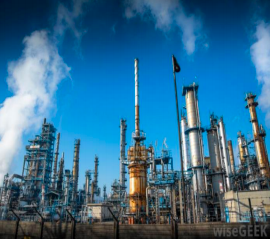Edward Arnold - Argus Consulting
 This presentation will outline and explain the current state of the US refining business. It will focus on current and likely upcoming changes that will affect all US refiners. It will cover:
This presentation will outline and explain the current state of the US refining business. It will focus on current and likely upcoming changes that will affect all US refiners. It will cover:
- Declining distillate demand
- Stalled gasoline demand and the likely effects of electric vehicles
- The changing refined products export market
- The likely effects of MARPOL VI
- The changing anode grade coke market
- Canadian Dilbit imports
- RINs and RVOs
 Ed is a senior consultant with 39 years of experience covering petrochemicals, refining, upstream and biotechnology. He has advised some of the world’s largest energy companies, as well as banks, sovereign wealth funds, government agencies and entrepreneurial firms. During his time as a Senior Group Manager for Jacobs Consultancy he performed due diligence for six North American refinery and chemical firm acquisitions, as well as numerous capital project valuations, project feasibility studies, new process technology development projects, and market risk analyses. Ed holds bachelor’s degrees in Chemical Engineering and Biochemistry from the University of California, as well as an MSc in Microbiology from the Illinois Institute of Technology and an MBA from University of Chicago.
Ed is a senior consultant with 39 years of experience covering petrochemicals, refining, upstream and biotechnology. He has advised some of the world’s largest energy companies, as well as banks, sovereign wealth funds, government agencies and entrepreneurial firms. During his time as a Senior Group Manager for Jacobs Consultancy he performed due diligence for six North American refinery and chemical firm acquisitions, as well as numerous capital project valuations, project feasibility studies, new process technology development projects, and market risk analyses. Ed holds bachelor’s degrees in Chemical Engineering and Biochemistry from the University of California, as well as an MSc in Microbiology from the Illinois Institute of Technology and an MBA from University of Chicago.

An important part of the RefComm event is the interactive Q&A during each session. The audience is encouraged to ask questions live or submit anonymous questions via the real-time app (SLIDO). Because of the high volume of questions, not all are addressed during the event. Below are audience questions and answers from the presenter or other industry experts.
Question: How many barrels of coking capacity are currently “open”? (not being fully utilized)
Answer: We do not have a “rock solid” numbers for the US and world as a whole. Most of the “per refinery” knowledge we have is confidential. Regardless, most of the US and Asian-region refiners we work with (who have cokers) run their cokers at near full capacity (unless they are in TAR mode). However, a few do not, for some periods of time. (We know of one US refiner that has shut a coker train down, as they take advantage of low tight light oil prices.) We expect that, by the time we are in January, 2020, most coking capacity in the US will be at full capacity due to the attractive spreads.






